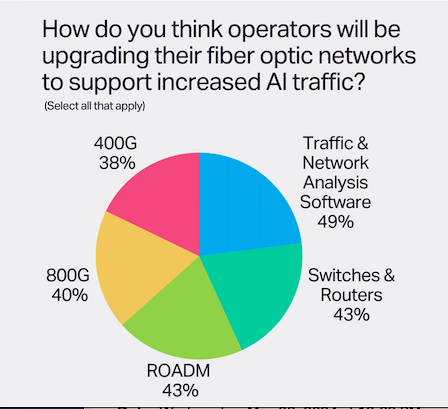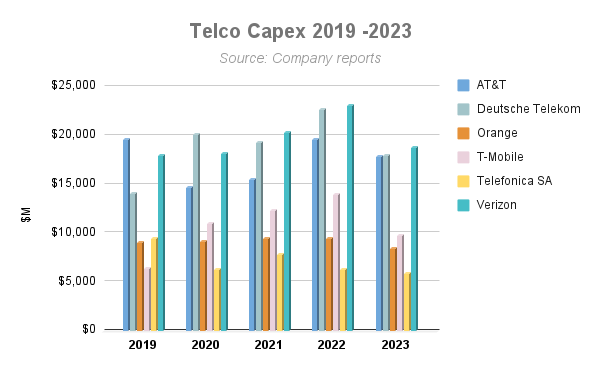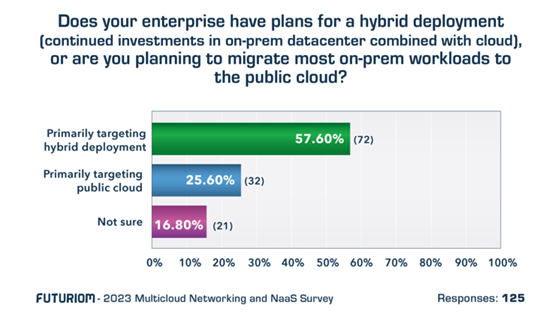Survey: Telcos Think Big About AI

Telcos worldwide seem optimistic about the potential for AI to improve their networks. But whether they can make it happen remains a question.
In a global survey commissioned by optical networking provider Ciena, 58% of over 1,500 telecom and IT engineers and managers at communication service providers (CSPs) in 17 countries worldwide said they believe that AI will improve their networks’ operational efficiency by 40% or more. And 85% said they’re confident that AI will help monetize network services.
At the same time, those surveyed acknowledged that telecom networks need big changes to realize these goals. A full 99% believe that fiber-optic networks will need upgrading to support AI traffic. Also, 49% think traffic and network analysis software will be needed to improve network performance; 43% think switches and routers will need an overhaul; and 40% think 800-Gb/s connectivity will be required.

Source: Ciena
All of which is another reminder of an ongoing spending lull across the telecom world. According to Futuriom research, telcos as a group may not open their wallets too wide this year. Having established their 5G networks, many are holding back on further spending. High interest rates and macroeconomic uncertainty are also contributing to a reluctance to spend on new infrastructure, particularly when it comes to supporting AI.

High Hopes, Low Income
Lack of funds isn’t squashing telcos’ hopes that AI will help them boost revenue. Of Ciena's sample, 40% believe AI will help them open their networks to third-party integrations; 37% want AI to help provide security and privacy services; and another 37% foresee new product offerings. Another 35% think AI will help them create tailored subscription packages for services, while 34% see AI helping them to differentiate services based on quality of service.
The telco respondents see distinct opportunities for AI-driven services across several vertical markets, including financial services, entertainment, manufacturing, healthcare, and education.
Telcos are already using AI for performance management and predictive maintenance, which help to improve service quality. And they have long adopted it for use in customer service and fraud detection. But extending the use of generative AI (GenAI) to offer substantial new network opportunities may take some time.
Provided capital spending (capex) rises with improved sales, telcos see cloud technology as key to implementing AI: 43% see private cloud as key to AI implementation and support; 37% see public cloud as the best option; and interestingly compared to enterprise customers, 21% plan to use a hybrid cloud approach.
In contrast, Futuriom’s last Multicloud Networking and NaaS Survey Report indicated that enterprise users favor a hybrid cloud approach to their networks:

Views Differ with Geographies
Notably, Ciena’s survey indicated that the U.S. is markedly less optimistic about AI coming to the rescue than are other countries. While 95% of respondents from India noted confidence in monetizing AI, 55% of American respondents held that view.
Still, it’s clear that AI has captured the attention of telcos worldwide. Indeed, some large providers have been using AI in various ways to improve their services and streamline their operations. For its part, Ciena remains optimistic, particularly regarding optimizing services, achieving AIOps savings through predictive maintenance, and automating security.
Futuriom Take: Ciena’s recent survey of over 1,500 telco IT engineers and managers reveals that telcos have solid AI ambitions. But reduced revenues and capex budgets may hinder progress for the short term.






















